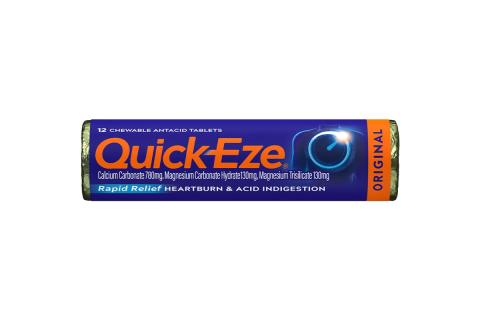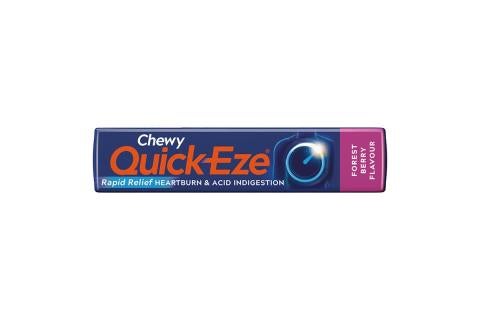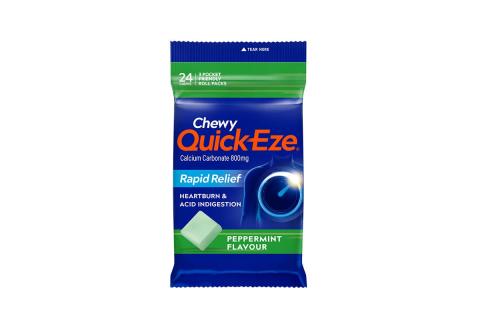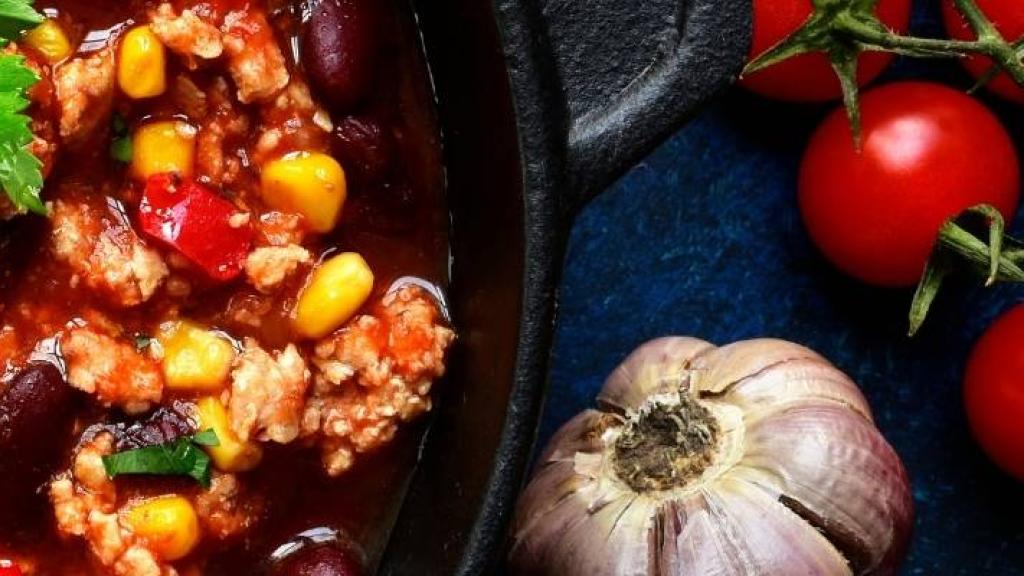Acid reflux and coffee: What you need to know
For many of us, coffee isn’t just a drink—it’s a ritual, a comfort, and a little boost to get through the day. But if you’ve ever experienced the unwelcome twinge of acid reflux or heartburn after your morning cup, you’ll know how frustrating it can be.
If you notice that coffee might be a trigger for your heartburn, there is encouraging news By making a few simple tweaks to your routine, you may be able to savour your brew while effectively managing your reflux symptoms. Let’s explore some strategies together.
Does coffee trigger acid reflux?
It's important to understand that individual responses to caffeine can vary.1 What might trigger an episode of acid reflux in one person could have no effect on another. For some, a steaming cup of coffee in the morning is a non-negotiable start to the day, without any adverse effects. For others, coffee may stir up discomfort and lead to unpleasant reflux symptoms. This can be due to the caffeine content in your coffee which can increase the amount of acid in your stomach, making it easier for acid reflux or heartburn to take effect.9
Now, let's clear up a common misconception: while coffee is often blamed for triggering acid reflux in some people, it's not the only offender lurking in our diets. Indeed, many other common culprits could potentially be contributing to your acid reflux symptoms.
Tomatoes and citrus
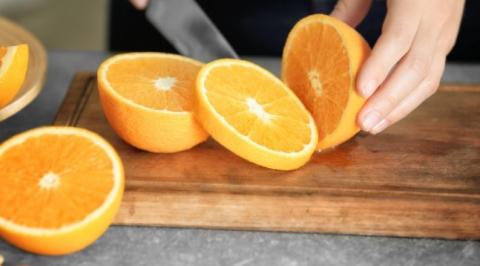
These foods, an important part of many dishes, may potentially contribute to discomfort.8 Whether it's a fresh tomato salad or a citrus-drizzled dessert, these acidic delights can be trouble for those prone to reflux due to their effect on the LES.2
Chocolate
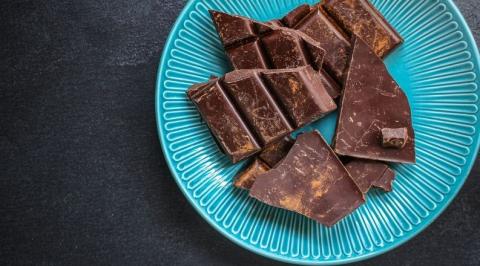
Chocolate, another highly enjoyed treat, also makes the list. Its rich and indulgent nature, while delicious, can relax the lower oesophageal sphincter, paving the way for acid to travel up into the oesophagus.3
Tea, energy drinks and soda
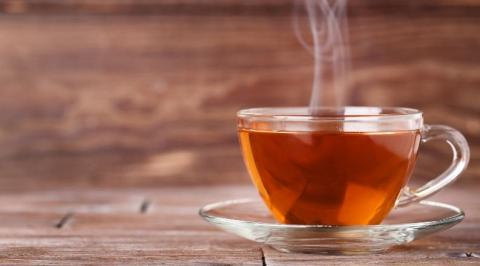
Then we have carbonated or caffeinated drinks like tea, energy drinks, and soda. The bubbles in carbonated drinks can cause stomach distension, increasing the likelihood of acid reflux.3 Caffeine, on the other hand, can stimulate acid production, exacerbating symptoms for some people.10
If you're someone who finds their love for coffee clashing with their comfort, exploring alternatives like herbal teas or decaf options may offer some relief. Being mindful and attentive to how various foods and drinks affect you can help in managing the frequency of acid reflux symptoms. Tailoring your diet to suit your body's responses ensures you can enjoy your daily favourites without too much discomfort. Explore our article about acid reflux foods to avoid here.
Tips for how to manage acid reflux if you are a coffee lover
Enjoying the right coffee, at the right time
For many people, coffee is more than just a caffeine fix—it's a cherished ritual that marks the rhythm of daily life. While some people find that caffeinated drinks such as coffee trigger acid reflux, it doesn’t necessarily mean that they must give up their beloved brew entirely. If you feel that coffee may trigger acid reflux, then with a few mindful adjustments in how and when you drink coffee, you may be able to continue to enjoy all that coffee culture has to offer. Here are a few ideas of how you can tweak your coffee habits to keep enjoying your cuppa.
Coffee timing matters
Even though research into whether coffee causes reflux or worsens symptoms isn’t definitive, it could affect your situation. 5 If coffee tends to trigger heartburn for you, one "coffee hack" to consider is adjusting the timing of your coffee break. If you find that drinking coffee on an empty stomach sometimes leaves you feeling uncomfortable, try enjoying your first cup of coffee after your breakfast.5 Think of this adjustment not as a restriction, but as an indulgent, mindful practice that enhances the full enjoyment of your morning ritual.
Reduce the addition of high-fat creamers
High-fat milk and creamers are known triggers for heartburn. Consider trying a cup of coffee without any added milk or sugar to see if this helps. You may also want to explore alternatives such as plant-based milk, natural sweeteners, or simply enjoying black coffee.
Experiment with low-acidity options
If you find that regular coffee affects your stomach, experimenting with low-acidity options might be your solution. Certain coffee blends and brewing methods are gentler, offering a more pleasant experience for those that are sensitive.
Cold brew
Cold brew is an excellent option that's typically lower in acidity and smoother in taste. This brewing method involves steeping coffee grounds in cold water over an extended period, resulting in a refreshing drink that you might find more gentle on your stomach and rich in flavour.
Dark roasts
Consider trying dark roasts as part of your coffee repertoire. These beans tend to be less acidic compared to their lighter counterparts, offering a robust flavour profile while being easier on the digestive system.
Low-acid beans
Seek out beans that are either specially grown or processed to reduce acidity. These low-acid beans allow you to enjoy your coffee without worrying about the harsh effects on your stomach. They are a great alternative for those particularly prone to acid reflux.
Choose preparation methods wisely
The way you prepare your coffee can also influence its acidity. Brewing methods like using a French press or an AeroPress can yield a less acidic cup compared to drip coffee or espresso. These methods provide more control over the brewing process and can help you craft a cup tailored to your taste and sensitivity preferences. By exploring these various options, you can continue to enjoy your coffee moments without compromise.

How to cut back on coffee (without cutting it out)
If coffee seems to be a trigger, cutting back doesn’t have to feel like deprivation. Try these tips:
Start small
If you're looking to reduce your caffeine intake or manage its effects, an effective approach is to start with your serving size. Gradually decreasing the size of your coffee servings can help ease you into a new routine without feeling deprived. Begin by moving from a large mug to a smaller cup, allowing your body to slowly adjust to a reduced caffeine intake. This method not only helps diminish reliance on caffeine but also allows you to enjoy your daily coffee ritual in a more moderate and controlled manner.
Reframe your ritual
One of the most impactful changes you can make to your coffee habits is to shift your perspective on what that cup means to you. Instead of viewing coffee as a necessity to start your day, consider framing it as an indulgent treat to be enjoyed mindfully. This change in mindset can enrich your appreciation for every sip, making each cup a special occasion rather than just a part of the routine. When you treat coffee as a mindful experience, you’re more likely to pay attention to the quality of the brew and the aroma.
Switch it up
Breaking habitual coffee consumption doesn't have to mean losing the comfort that your morning brew provides. Consider alternating your coffee days with other soothing morning rituals that can be equally satisfying. For instance, you might replace your coffee with a morning walk, enjoying the fresh air and natural surroundings to invigorate your senses. By integrating a variety of grounding activities into your morning routine, you create a flexible yet comforting start to each day.
Energising caffeine alternatives
Need your caffeine fix or just a mood boost? Here are some alternatives to try:
Low-acid coffee blends
These blends are crafted specifically to offer a gentler experience on the stomach without compromising on flavour. Low-acid beans are often sourced from specific regions or undergo special processing methods to minimise acidity while delivering a full-bodied taste. This means you may be able to enjoy your coffee's richness and aroma without the discomfort that sometimes is associated with more acidic options.
Decaf
Decaf coffee presents an excellent alternative for those who love the taste of coffee but are looking to cut down on their caffeine intake. You'll find that it offers all the flavour and aroma of regular coffee, without the stimulating effects of caffeine that might contribute to reflux or jitters. This makes decaf a versatile choice for any time of day, whether you're winding down in the evening or aiming to avoid excessive caffeine consumption while still indulging in coffee culture.
Tea or matcha
Options like green tea, matcha, or chai lattes can offer a delightful alternative. Green tea and matcha, derived from the same plant, can offer a gentler lift in energy and are rich in antioxidants, which can contribute to overall wellbeing. Chai lattes, with their blend of warming spices and creamy texture, provide comfort and satisfaction akin to coffee. Exploring these alternative beverages allows you to diversify your daily routine, adding variety and excitement that complements your lifestyle.
Move your body
Incorporating physical activity into your morning routine can be a game-changer for boosting energy. A quick morning workout, whether it’s a full exercise session or just a few stretches, can stimulate your metabolism and prepare your body for the day ahead. Even something as simple as a brisk walk around your neighbourhood can invigorate your senses and increase your energy levels naturally.
Coffee and your comfort
Coffee can be a joy with the right strategies. By tweaking your coffee routine, exploring alternatives, and keeping Chewy Quick-Eze® on hand for the occasional flare-up, you can enjoy your daily ritual and potentially manage the heartburn.
References
[1] https://www.medicalnewstoday.com/articles/323333
[2] https://www.verywellhealth.com/acidic-foods-8729546
[3] https://www.healthline.com/health/digestive-health/chocolate-and-acid-reflux
[4] https://pubmed.ncbi.nlm.nih.gov/20055784/
[5] https://www.health.com/drink-coffee-empty-stomach-8423692#:~:text=If%20….
[6] https://www.healthline.com/nutrition/is-coffee-acidic
[7] https://www.healthline.com/health/gerd/coffee-tea
[8] https://hola.health/health-info/digestive-disorders/what-foods-neutrali…
[9] https://health.clevelandclinic.org/coffee-giving-you-tummy-trouble-try-…
[10] https://allieddigestivehealth.com/can-coffee-cause-gastritis/#:~:text=C….
Frequently Asked Questions
What’s the best time of day for coffee if I have reflux?
If you experience reflux, timing your coffee consumption wisely can make a big difference. Drinking coffee after a meal, particularly breakfast, is often a better choice than having it on an empty stomach[IH1] [Sd2] . When you drink coffee without food, the acidity and caffeine can have a stronger impact on your stomach lining[IH3] [Sd4] and may relax the lower oesophageal sphincter (LOS), increasing the risk of acid reflux. However, pairing your coffee with a meal or even a small snack may help buffer its effects.5
Is coffee bad for acid reflux?
Not necessarily—it all depends on your personal tolerance, the type of coffee you drink, and how you consume it. While coffee’s natural acidity and caffeine content can sometimes trigger acid reflux symptoms in sensitive individuals, this isn’t a universal experience. Many people with reflux can still enjoy their daily cup without any issues. Choosing low-acid blends, which are specially crafted to reduce acidity, can be an option for those with heartburn concerns.
Is coffee an acidic drink?
Yes, coffee is naturally acidic, but its acidity levels can vary significantly depending on the type of beans and how they are brewed.6 Beans grown in different regions often have distinct acidity profiles, with some producing brighter, fruitier notes and others offering a mellower taste. The brewing method also plays a key role in determining the acidity of your coffee. For instance, cold brew is typically less acidic than hot brewing methods, making it a gentler option for those with acid reflux concerns. Choosing the right coffee for your needs might involve experimenting with bean origins, roast levels, and preparation techniques to find the perfect balance of flavour and acidity that works for you.
Does drinking coffee cause heartburn?
It can for some people, as coffee contains caffeine, which may relax the lower oesophageal sphincter (LOS), allowing stomach acid to flow back into the oesophagus and potentially trigger heartburn. Additionally, coffee’s natural acidity can irritate sensitive stomachs, especially when consumed on an empty stomach [IH1] [Sd2] or in large quantities.5 However, this doesn’t mean you have to give up your morning brew entirely. Adjusting your approach to coffee consumption can make a difference.
Does coffee cause acid reflux?
For some people, coffee can indeed trigger acid reflux, as caffeine is known to relax the lower oesophageal sphincter (LOS)—the muscle responsible for keeping stomach acid from flowing back into the oesophagus. When this muscle relaxes, it increases the likelihood of acid reflux and the accompanying symptoms, such as heartburn or discomfort. However, not everyone is affected in the same way. Many coffee lovers can enjoy their daily brew without any issues, which highlights the importance of individual tolerance.7
Can quitting coffee cure acid reflux?
While giving up coffee might help alleviate symptoms for some people, it’s not necessarily a guaranteed cure for acid reflux. Coffee, with its natural acidity and caffeine content, can relax the lower oesophageal sphincter (LOS), potentially allowing stomach acid to flow back into the oesophagus and trigger discomfort. However, acid reflux is usually influenced by a combination of factors, and simply cutting out coffee may not resolve the issue entirely. Discover how to avoid acid reflux with lifestyle changes.
